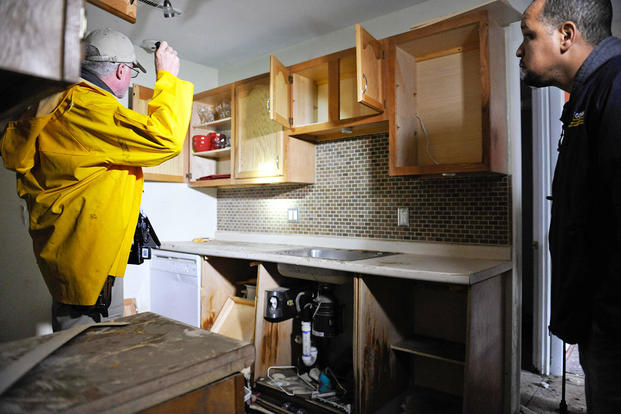They do sound as if they're similar, a property inspection and a property appraisal. And yes, different individuals do in fact visit and inspect the property, but for two entirely different purposes. Let's look at the purposes of each and how they affect a VA loan.
VA Property Inspections
The first difference between a VA inspection and a VA appraisal is that an inspection is not a requirement for a VA loan. In fact, a property inspection isn't a requirement on any home loan. Some states do require an inspection for termites and other wood-destroying insects, but a property inspection reviews "the bones" of the property. Buying a home without having a professional inspector make a thorough review is ill-advised. What does a property inspector look for? Literally hundreds of things such as:
- Foundation
- Basement
- Structural issues
- Doors
- Windows
- Floors
- Ceilings
- Attic
- Root
- Electrical systems
- Plumbing
- Utilities
- Appliances
- And more
The inspector will literally crawl from basement to attic looking for potential problems and if something needs attention, the inspection report will identify it.
VA Appraisals
An appraisal is required in order for the VA lender to make a loan approval. When a contract is agreed upon between a seller and a buyer, the sales contract is forwarded to the lender who then orders a property appraisal. The appraisal's duty is to determine the subject property's current market value. Regardless of what the sales contract says, the VA lender will always use the lower of the sales price or appraised value when establishing a maximum loan amount.
An appraiser will physically visit the property as well as research information for similar homes in the area and compare their sales prices with the sales price of the unit. A VA lender wants to have a marketable property as well as make sure the home sold for a reasonable price. If there is a variance of more than 10 percent in the sales price of area homes after all adjustments are made, the final sales price can be lowered.
The property inspection evaluates the property's physical condition while the property appraisal helps establish the current market value.
The VA Minimum Property Requirements
VA appraisals do however require additional information that appraisals for other loan types do not require. The VA has a list of minimum property requirements, or MPRs, that must be addressed by the appraiser and appear on the appraisal report. What are some of the MPRs?
The first requirement is simply that the property must be residential and not commercial and be occupied by the borrower. The appraiser must also make note that the property must have adequate living quarters with a working kitchen, bathroom and bedrooms.
The property's electrical and plumbing systems must demonstrate to be in good working order as well as the home having a working heating system along with hot water. The roof is also inspected to VA's requirements and unlike other appraisal types, if the appraiser finds that there are more than three layers of shingles on the roof, the shingles will have to be replaced in their entirety.
The VA appraiser will also note if there are any hazardous materials on the site and the structure shows no signs of defective craftsmanship, deferred maintenance such as a foundation that appears cracking or a damp basement. And as with other government-backed loans, if the home was built prior to 1978, the property must be inspected for lead-based paint and if found, the offending paint must be removed or covered with drywall or other permanent repair. The VA appraisal is more extensive than other appraisals such as those performed for conventional loans underwritten to Fannie Mae or Freddie Mac guidelines. In fact, the intensity of a VA appraisal combined with a property inspection has kept potential VA borrowers from owning defective properties. The safeguards in place are there to protect the borrower, not simply to terminate a sales contract.
Still have questions?
Lenders serve as a great resource throughout the home-buying process. To find a lender, use our VA Loan Finder, which matches you with up to five rates, with no obligation or credit check required. From there, the lender you select can guide you throughout the process: from COE to appraisals to closing.










